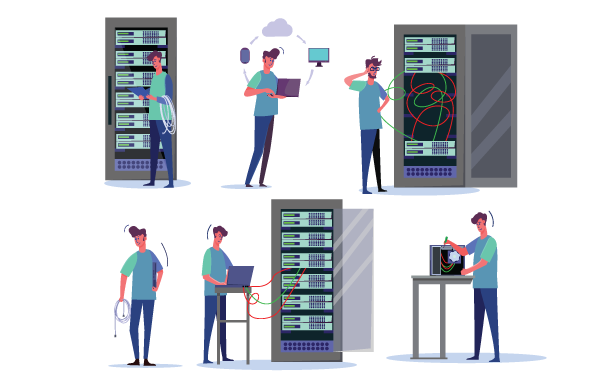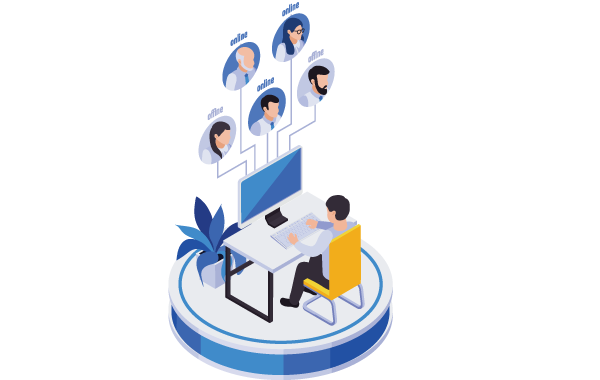Remote Infrastructure Managment
Remote infrastructure management (RIM) is the remote management of IT infrastructure. It includes the management of computer hardware and software, such as workstations desktops, laptops, notebooks, etc and servers, network devices, storage devices, IT security devices, etc. of a company. It helps in centralizing the management of IT infrastructure in addition to ensuring greater coordination and ease of maintenance.


Network Services
Network services are applications at the network application layer that connect users working in offices, branches, or remote locations to applications and data in a network. These services typically run on servers such as Internet and cloud connectivity, Branch office and campus connectivity, Private data center services, Secure cloud-connectivity services and Virtual network services.
Security Services
With security threats becoming more prevalent and sophisticated, companies need to ensure the protection of their systems to guard against potentially catastrophic data loss. We offer security services to shield your critical IT environment from harm. From assessing the state of your vulnerabilities to providing day-to-day security functions, our team has the knowledge and expertise to give your organization peace of mind.


Server Management
Server management is the process of monitoring and maintaining servers to operate at peak performance. It also encompasses the management of hardware, software, security, and backups. Its main objective is to mitigate server slowdowns and downtime, create secure environments, and ensure that servers continue to meet the requirements of an organization even as it grows.
Storage Management
Storage management encompasses all the processes and technologies used to manage the resources, software, and hardware that make up a data storage system. It involves striking the optimal balance between costs, performance, and capacity while ensuring the availability, resiliency, and security of the data that powers an increasingly digital world.


Cloud Management
Cloud management refers to the exercise of control over public, private or hybrid cloud infrastructure resources and services. A well-designed cloud management strategy can help IT pros control those dynamic and scalable computing environments.
Backup Management
Backup management is the process of monitoring, maintaining, testing and deleting obsolete backups on a regular basis to ensure your stored data is reliable, accessible and compliant with industry standards. This service ensures that if data becomes corrupted or unavailable due to a disaster within the data center, the data can be restored in a timely fashion.


Database Management
Database Management involves designing, planning, setup of database and database upgrades which helps the firm in making plans for further operations. Database management helps to reduce time consumption by reducing manual work. It helps to deal with a huge amount of data and helps the user with multi-tasking.
End User Management
The end-user is the most valuable person for any enterprise. To enable the end-user community with the latest technology trends, an organisation needs to adapt and manage their critical IT. We function it by designing a strategic solution to manage their distributed infrastructure and provide end-user support for desktops, laptops, thin clients, printers, scanners & other peripherals.


AMC
AMC or Annual Maintenance Contract is a source through which the provider and the user are in a secure domain. It offers secure maintenance services for all the IT facilities, software, and hardware equipment like printers, desktops, laptops, desktops, smartphones, and other devices.
